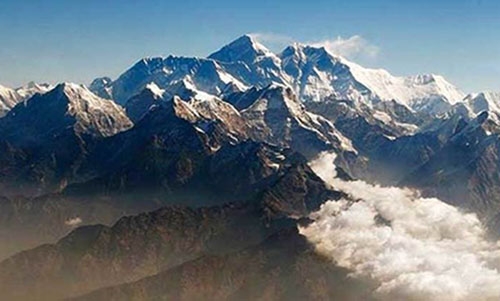Britons first foreigners to scale Everest after quake
Kathmandu: British mountaineers Kenton Cool and Robert Lucas became the first foreigners to summit Mount Everest after a deadly earthquake ended last year's climbing season, an expedition operator said Thursday.
The mountaineers were accompanied by two local guides, Dorchi Gyalzen Sherpa and Pemba Bhote, and reached the top of the world's highest peak at 8:15 am (0230 GMT) on Thursday, said Iswari Paudel, owner of Himalayan Guides Nepal, which arranged the expedition.
The four-person team was the first to ascend the 8,850-metre (29,035-foot) high Himalayan peak after nine Nepalis reached the summit on Wednesday evening while fixing ropes for foreign climbers who plan to scale the mountain this week.
"After today's successful summit, Kenton Cool has become the first Briton to summit Everest 12 times," said Paudel, who received the news from team members stationed at base camp.
Hundreds of climbers abandoned the mountain last year after an earthquake-triggered avalanche at Everest base camp killed 18 people, including eight Nepalis working for Paudel.
Meanwhile, only one climber summited the peak in 2014 after an avalanche killed 16 Nepali guides. China's Wang Jing reached the top after using a helicopter to transport tent equipment to higher camps following the closure of that year's mountaineering season.
"In the last two years, I have lost 14 sherpas in two disasters on Everest," Paudel told AFP.
"All of us in the climbing community -- locals and westerners -- have been so sad. We really wanted to send out a positive message to the world this year... and today's summit is very good news," he said.
Nepal issued 289 permits to mountaineers for this year's brief spring climbing season, which runs from mid-April to the end of May.
Mountaineering is a major revenue-earner for the impoverished Himalayan nation but last year's earthquake, which killed almost 9,000 people, threatened the future of the country's climbing and trekking industry.
Related Posts

